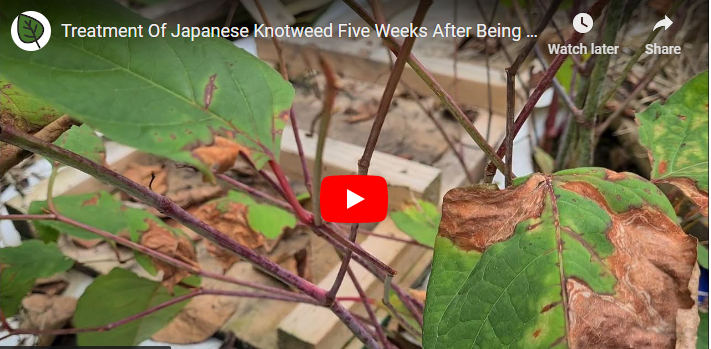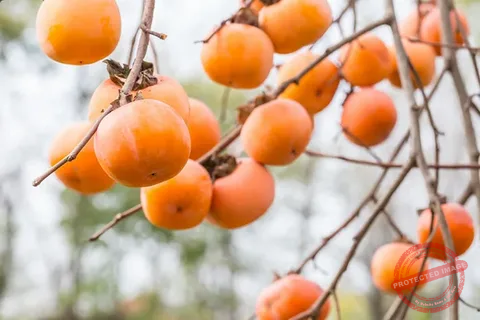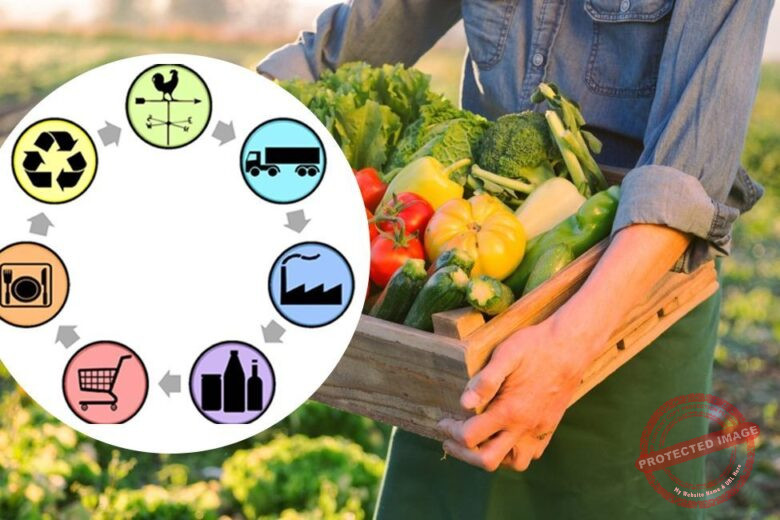South Africa has a diverse agricultural industry with a wide range of crops and livestock raised throughout the country. Agriculture is a significant contributor to the country’s economy, providing employment and generating income for many communities.
South Africa is known for its production of fruits, including citrus and grapes, as well as maize, wheat, and other grains. Livestock farming is also an important part of the industry, with cattle, sheep, and goats being raised for meat and dairy products.
Here are 25 facts about agriculture in South Africa that highlight the country’s rich agricultural history and current production.
25 Agriculture Facts In South Africa
South Africa has a rich agricultural heritage and is renowned for its diverse range of crops, including citrus fruits, maize, and wine grapes.
The country’s favorable climate and extensive arable land make it an ideal location for agriculture. Here are 25 interesting facts about agriculture in South Africa:
Read Also: 25 Agriculture Facts In North Dakota
Fact 1: South Africa Is A Major Exporter Of Citrus Fruits
South Africa is one of the world’s largest producers of citrus fruits, including oranges, lemons, and grapefruit.
The country has ideal climatic conditions and fertile soils that allow for the growth of these crops.
The citrus industry is a significant contributor to South Africa’s economy, and the country exports a significant portion of its citrus production to Europe and Asia.
Read Also: 25 Agriculture Facts In Mexico [All You Should Know]
Fact 2: Wine Production Is A Significant Part Of The Agriculture Industry
Wine production is a significant industry in South Africa, with the country being the Ninth-largest wine producer globally with over 100,000 hectares of vineyards.
The Western Cape region, which includes areas such as Stellenbosch and Franschhoek, is the hub of the South African wine industry.
The region has a Mediterranean climate, which is ideal for growing grapes, and produces world-renowned wines such as Cabernet Sauvignon, Pinotage, and Chenin Blanc.
Fact 3: South Africa Is The Largest Producer Of Macadamia Nuts Globally
South Africa is the world’s second-largest producer of macadamia nuts accounting for approximately 30% of global production. The country has favorable climatic conditions for growing macadamia trees, with most of the farms located in the northeastern parts of the country.
Read Also: 25 Agriculture Facts In Ghana [All You Should Know]
Macadamia nuts are highly sought after in the global market due to their nutritional value and are used in a wide range of products such as chocolates, cookies, and nut butter.
Fact 4: Rooibos Plant is Indigenous to South Africa
The Rooibos plant, which is native to South Africa, and is only grown in the Western Cape is an important crop and is used to produce the world-famous Rooibos tea.
The tea is made from the leaves of the plant, which are naturally caffeine-free and high in antioxidants. Rooibos tea has gained popularity globally and is now exported to over 30 countries worldwide.
Fact 5: South Africa is a Leading Producer of Ostrich Meat
South Africa is a leading producer of ostrich meat, which is a popular delicacy due to its low-fat content and high nutritional value, and including other ostrich products such as leather, and feathers.
The country is home to the largest population of ostriches globally and is responsible for approximately 80% of global ostrich meat production.
The meat is consumed locally and is also exported to countries such as Japan, the United States, and Europe.
Read Also: 25 Agriculture Facts In Iowa
Fact 6: South Africa has a Viable Sugar Industry
The sugar industry is a significant contributor to South Africa’s economy and provides employment to thousands of people.
The country is the largest sugar producer in Africa and is ranked 15th globally. Most of the sugar production takes place in the KwaZulu-Natal province, which has favorable climatic conditions for growing sugar cane.
Fact 7: South Africa Is Also A Leading Producer Of Avocados And Pomegranates.
South Africa is also a significant producer of avocados and is ranked seventh globally in terms of production.
The country’s favorable climatic conditions and fertile soils allow for the growth of high-quality avocados, which are in high demand in the global market.
Read Also: 25 Agriculture Facts In Nigeria [All You Need To Know]
Fact 8: The Country Has A Thriving Livestock Industry
The livestock industry is also significant in South Africa, with the country being the largest producer of ostrich leather globally. The leather is highly sought after due to its durability, unique texture, and softness.
Fact 9: One of the Largest Almond Farms is in South Africa
South Africa is also home to one of the world’s largest almond farms, which covers over 14,000 hectares. The farm produces over 5,000 tons of almonds annually, which are exported to countries such as India, China, and Europe.
Fact 10: South Africa is a Major Producer of Mohair
The country is also a significant producer of mohair, a valuable and luxurious natural fiber. Mohair is produced from the Angora goat and is used to make a range of products, including clothing, blankets, and upholstery.
Read Also: 25 Agriculture Facts In Canada [All You Need To Know]
Fact 11: South Africa has a Thriving Beekeeping Industry
South Africa’s honey industry is growing, with beekeeping becoming an increasingly popular practice. Honey is produced in various regions of the country and is enjoyed both locally and internationally.
Fact 12: South Africa is one of the Leading Producers of Pecan Nuts
The country is also a significant producer of pecan nuts, with over 27,000 hectares of pecan trees. Pecan nuts are a valuable crop and are exported to various countries worldwide.
Fact 13: South Africa is a Leading Producer of Maize Crop
The country is a significant producer of maize, also known as corn, which is a staple food in South Africa. Maize is mainly grown in the Free State and Mpumalanga provinces and is used to produce various products, including mealie meal and animal feed.
Read Also: 25 Agriculture Facts In California
Fact 14: South Africa has a Thriving Aquaculture
South Africa has a growing aquaculture industry, with fish farming becoming increasingly popular. The country produces a range of fish, including trout, tilapia, and catfish.
Fact 15: South Africa is a Major Producer of Cotton
The country is a significant producer of cotton, which is mainly grown in the Limpopo, Mpumalanga, and KwaZulu-Natal provinces. Cotton is used to make a range of products, including clothing, bedding, and towels.
Fact 16: South Africa is a significant producer of a range of vegetables
South Africa also produces mega amounts of vegetables including potatoes, carrots, and onions. Vegetables are mainly grown in the Western Cape, Eastern Cape, and Limpopo provinces and are sold both locally and internationally.
Read Also: 25 Agriculture Facts In the UK [All You Should Know]
Fact 17: The Limpopo Province Is The Country’s Largest Producer Of Mangoes, Bananas, And Litchis.
The Limpopo province in South Africa is the country’s largest producer of mangoes, bananas, and litchis. These fruits are grown in both commercial and subsistence farms in the region.
Limpopo is known for its ideal climate and soil conditions for tropical fruits production. Mangoes, bananas, and litchis are in high demand locally and are also exported to other countries.
Read Also: 25 Agriculture Facts In the US [All You Should Know]
Fact 18: The Mpumalanga Province Is A Significant Producer Of Tobacco.
The Mpumalanga province is a significant producer of tobacco, with farms located in areas such as Malalane and Nkomazi.
The province is known for its high-quality tobacco, and the industry provides employment opportunities to many people in the area.
Mpumalanga’s tobacco production supports the local cigarette manufacturing industry and also contributes to the country’s tobacco exports.
Fact 19: The Northern Cape is known for its production of table grapes, raisins, and sultanas.
The Northern Cape is known for its production of table grapes, raisins, and sultanas. The region’s dry and warm climate is ideal for grape production, and farmers have developed innovative methods to conserve water and manage pests.
The Northern Cape’s grape industry provides employment to thousands of people, and its produce is both consumed locally and exported to other countries.
Fact 20: The citrus fruit production industry in South Africa provides employment for over 100,000 people.
The citrus fruit production industry in South Africa provides employment for over 100,000 people. The country is the second-largest producer of citrus fruits in the world after Spain, with the Eastern Cape and Limpopo provinces being the largest producers.
South Africa’s citrus fruit industry exports significant volumes of oranges, lemons, and grapefruits to countries such as the United States, the United Kingdom, and China.
Fact 21: South Africa has a Diverse Range of Farming Methods
South Africa has a diverse range of farming methods, including commercial, communal, and subsistence farming. Commercial farming is prevalent in areas with large farms and advanced agricultural practices.
Communal farming is practiced in rural areas where communities come together to farm and share the produce. Subsistence farming is mainly for self-sufficiency and food security in rural areas.
Fact 22: Small-Scale Farming Plays A Crucial Role In Food Security And Poverty Alleviation In Rural Areas.
Small-scale farming plays a crucial role in food security and poverty alleviation in rural areas.
Small-scale farmers cultivate a variety of crops, including maize, vegetables, and fruits, and they also rear livestock.
These farmers often face challenges such as limited access to resources and markets, but they play a significant role in providing food for local communities.
Fact 23: The Country Has a Well-Developed Irrigation System
The country has a well-developed irrigation system, which allows for farming in arid regions.
South Africa has a long history of investing in irrigation systems, with the largest being the Orange River Project.
The irrigation systems have enabled farmers to grow crops in areas that would otherwise not support agriculture.
The country’s irrigation systems are also used for hydroelectric power generation and urban water supply.
Fact 24: The Kruger National Park Has A Thriving Agricultural Sector
The Kruger National Park has a thriving agricultural sector, with game ranching and livestock farming being the most prominent activities.
Game ranching is a sustainable form of agriculture that involves breeding and hunting wild animals for meat and trophies.
Livestock farming in the park involves breeding cattle, goats, and sheep for meat and milk. The park’s agricultural activities provide employment for many people in the area and contribute to the local economy.
Fact 25: South Africa’s Biodiversity Supports The Cultivation Of Unique Crops
South Africa’s biodiversity supports the cultivation of unique crops, such as buchu, rooibos, and honeybush tea.
These crops are native to South Africa and are grown in small quantities in various regions of the country.
Buchu is a medicinal herb used for various ailments, while rooibos and honeybush teas are caffeine-free and have become popular exports due to their health benefits.
The cultivation of these crops provides an alternative source of income for small-scale farmers and contributes to the country’s rich agricultural diversity.
Importance of farming in South Africa
Farming plays a vital role in South Africa’s economy, contributing to employment, food security, and the country’s gross domestic product.
Agriculture employs about 5% of the country’s workforce and accounts for approximately 2.5% of the country’s GDP.
Farming is also essential in supplying the country’s food needs, as over 70% of the country’s population relies on agriculture for their livelihood.
Also, the agricultural sector is an important contributor to the country’s exports, with South Africa being a net exporter of agricultural products.
Types of Farming in South Africa
South Africa’s diverse climate and terrain allow for a wide range of farming practices, from commercial to subsistence farming.
Commercial farming is widespread and uses modern techniques and technology to produce crops and livestock for sale.
Small-scale farming, also known as subsistence farming, is prevalent in rural areas and focuses on growing crops for personal consumption.
Other types of farming in South Africa include communal farming, which is often practiced by communities living in rural areas, and agroforestry, which is the combination of trees and crops to maximize productivity.
Benefits of Farming in South Africa
Farming in South Africa has numerous benefits, such as providing employment opportunities, contributing to food security, and promoting economic growth.
Agriculture creates jobs not only on farms but also in related industries, such as processing and transportation.
Farming also helps in providing food security by producing food for the local population and generating income for farmers.
More so, agriculture contributes to the country’s economic growth by generating foreign exchange through exports and boosting the rural economy.
Challenges of Farming in South Africa
Despite its benefits, farming in South Africa faces numerous challenges, including climate change, land reform, water scarcity, and pests and diseases.
The country’s changing climate and unpredictable weather patterns have led to droughts and floods, affecting crop yields and livestock production.
Land reform remains a contentious issue, with many farmers fearing for their land rights. Water scarcity is also a significant challenge, with many regions experiencing severe water shortages.
Furthermore, pests and diseases pose a significant threat to crops and livestock, leading to significant losses.
Best Farming Practices in South Africa
The best farming practices in South Africa include conservation agriculture, precision farming, and agroforestry.
Conservation agriculture involves minimizing soil disturbance, crop rotation, and maintaining soil cover to reduce soil erosion and enhance soil fertility.
Precision farming uses technology, such as GPS mapping and variable rate irrigation, to optimize crop yields and reduce waste.
Agroforestry combines trees and crops to enhance productivity, promote soil health, and increase biodiversity.
Best Crops to Plant in South Africa
South Africa has a diverse range of crops that are suitable for its various regions, climate, and soils.
Maize, soybeans, and sunflowers are some of the most widely planted crops in the country, while citrus fruits, apples, and grapes are popular fruit crops.
Other crops grown in South Africa include wheat, sugar cane, potatoes, and vegetables.
Rooibos tea, buchu, and honeybush tea are unique crops that are indigenous to South Africa and have gained international popularity.
Suitable Livestocks you can raise in South Africa
South Africa’s livestock sector is diverse, with a variety of animals raised for meat, milk, and wool production.
Cattle are the most widely raised livestock, followed by sheep, goats, and pigs. Other animals raised for commercial purposes include chickens, ducks, turkeys, and ostriches.
Livestock farming is prevalent in many regions of the country, providing employment opportunities and contributing to the country’s economy.
South Africa Agriculture Statistics
Agriculture plays a significant role in the South African economy, contributing about 2.4% to the country’s Gross Domestic Product (GDP).
The sector also provides employment opportunities to about 4.4% of the country’s population.
According to the latest available data from the World Bank, in 2020, South Africa’s agricultural production index increased by 6.7%, with crop production growing by 9.6%, livestock production by 1.8%, and forestry by 0.6%.
Agriculture in South Africa
South Africa has a diverse agricultural sector that produces a variety of crops, livestock, and other products. The country’s agriculture industry is divided into three main categories, namely commercial, communal, and subsistence farming.
Commercial farming is dominant and mainly focuses on the production of cash crops such as maize, wheat, sugar, and fruits, while communal farming is practiced in rural areas and produces food crops for local consumption.
Subsistence farming, on the other hand, is practiced by small-scale farmers who grow crops for their families and the local market.
South Africa Agricultural Products
South Africa produces a wide range of agricultural products, including maize, wheat, sugarcane, sunflower, soybeans, fruits, vegetables, and livestock products such as meat, dairy, and wool.
The country is also one of the largest producers of macadamia nuts, avocados, and citrus fruits in the world. Other important agricultural products in South Africa include wine, rooibos tea, and honey.
What Does South Africa Produce the Most?
South Africa is the world’s leading producer of macadamia nuts, with an annual production of about 50,000 tons.
The country is also the world’s second-largest producer of citrus fruits after Spain, with an annual production of over 2.7 million tons.
South Africa is a major producer of many other agricultural products, including grapes, avocados, and macadamia nuts.
South Africa Industries
South Africa’s agricultural industry is part of the country’s broader primary sector, which also includes mining and forestry.
The primary sector contributes about 7.2% to the country’s GDP and employs about 5% of the population.
The country’s agricultural industry is primarily export-oriented and accounts for about 10% of South Africa’s total exports.
South Africa Agricultural Exports
South Africa is a net exporter of agricultural products, with its main export markets being the European Union, Asia, and Africa.
The country’s top agricultural exports include citrus fruits, wine, macadamia nuts, and avocados. In 2020, South Africa’s total agricultural exports were valued at approximately $10.1 billion.
Conclusion
Agriculture plays a significant role in South Africa’s economy and social development. With a wide range of crops and livestock, the country continues to strive towards sustainable farming practices while overcoming challenges such as climate change and land reform.



![How To Buy Farmland For Investment [Farmer’s Guide]](https://agrolearner.com/wp-content/uploads/2024/01/Farmland.jpg)
One Reply to “25 Agriculture Facts In South Africa”